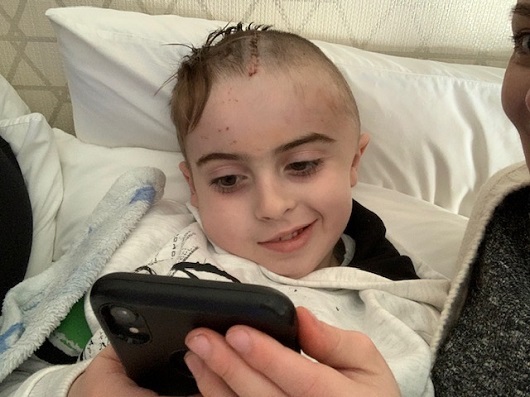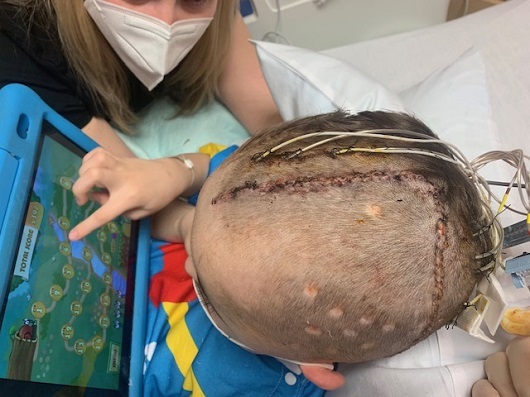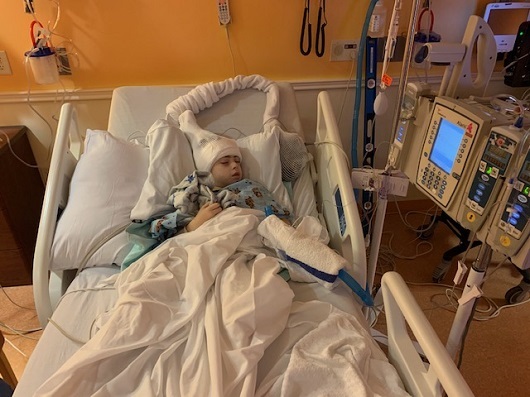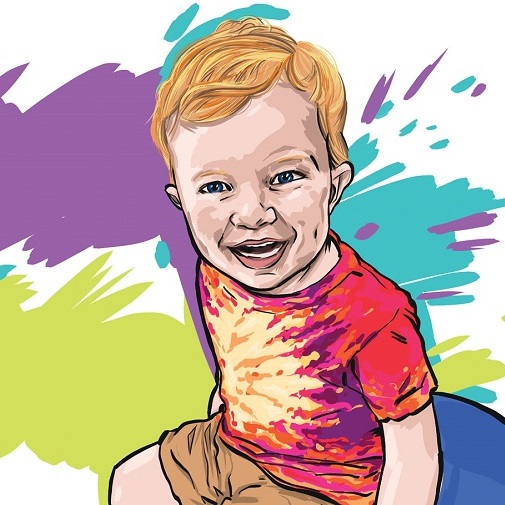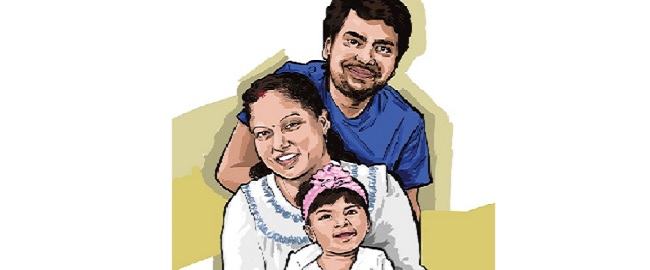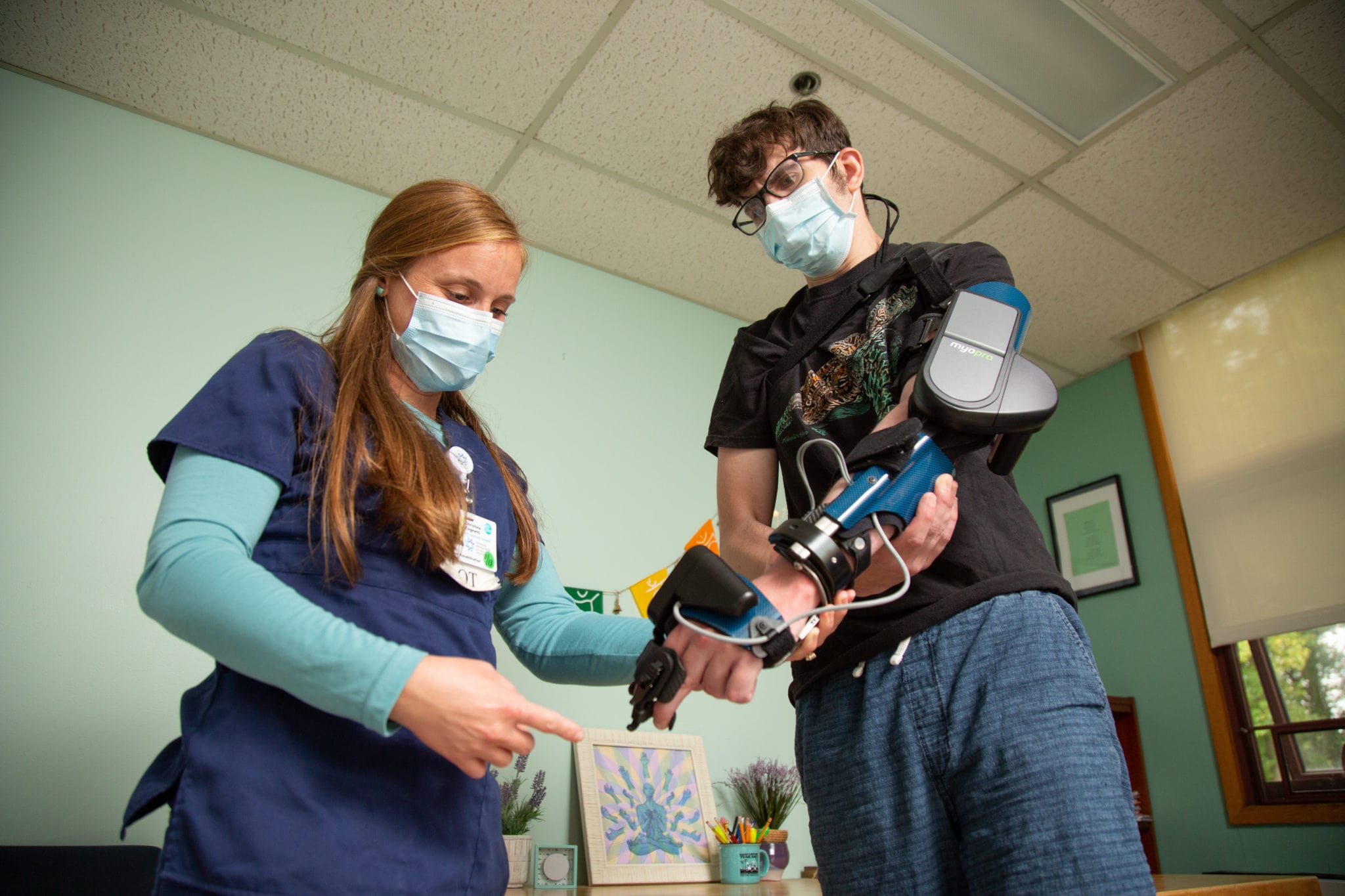Wales Family Finds Hope in New Jersey Pediatric Hospital
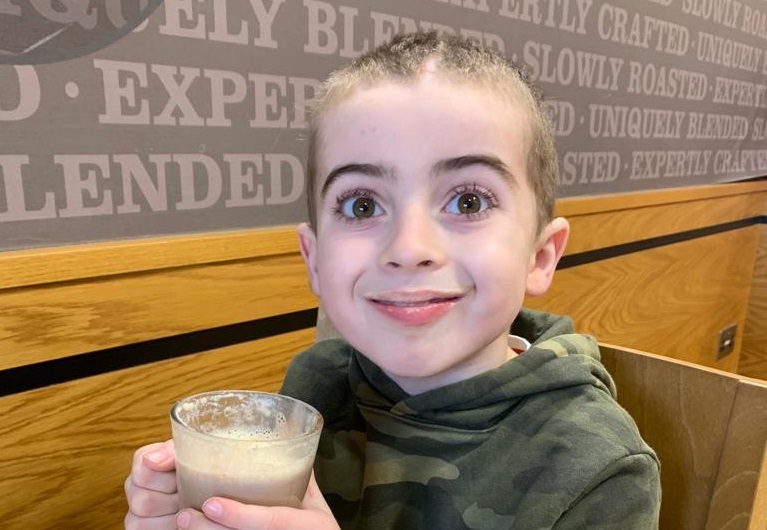
July 06, 2023
Many parents would go to the ends of the earth to help their sick child get well. Stewart and Kirsty McCarthy actually did—traveling across the Atlantic Ocean to Joseph M. Sanzari Children’s Hospital from their home in Wales for innovative epilepsy surgery for their son, Caleb.
The McCarthys join families from Bahrain, India and Poland—among other far-flung locales—seeking care with Luke Tomycz, M.D., a pediatric neurosurgeon at the Children’s Hospital, who specializes in epilepsy surgery.A web search led to Dr. Tomycz after Caleb had already undergone extensive testing and medication treatment in the United Kingdom that failed to pinpoint the brain region responsible for his increasingly relentless, body-wide seizures—which occurred over 50 times a day since age 4—or stop them from worsening.
Told by UK doctors that nothing more could be done for Caleb, the McCarthys refused to accept such a verdict, showing gritty resolve that changed—and possibly saved—their son’s life.
“They didn’t believe in Caleb’s case,” recalls Kirsty. “We’d hoped that surgery was an option, but they told us not to get our hopes up.”
Adds Stewart: “We were just distraught. Caleb was seizing so often and so violently that he would sometimes turn blue because he couldn’t catch his breath. We asked if he would make it into his teenage years and were told the odds weren’t great. It was the worst time of our lives.”
Long-Awaited Diagnosis
Desperate, the McCarthys emailed Dr. Tomycz, who promptly responded. After meeting on video calls and reviewing Caleb’s medical records, Dr. Tomycz told the family to book a flight to the United States.
While offering no guarantees, he believed Caleb could benefit from cutting-edge testing, imaging and brain surgery that might zero-in on his condition and dramatically reduce his seizures.
“I thought there was something we could do that might lead to a different outcome,” Dr. Tomycz says. “We recognized he might not be seizure-free, but we hoped that surgery would result in significant improvement.”
Dr. Tomycz’s instincts were on target. After the McCarthys landed in New Jersey in early 2022, Caleb stayed at the Children’s Hospital for three weeks, part of which was spent undergoing internal brain monitoring. It revealed he has focal cortical dysplasia (FCD), a type of epilepsy in which seizures originate in the brain’s frontal lobe. FCD is the most common reason for drug-resistant epilepsy (when epilepsy can’t be controlled by medication) in children.
“Within a week, we had every test done that took three years to get done in the UK,” Kirsty recalls. “The speed with which everything happened [at Joseph M. Sanzari Children’s Hospital] was unbelievable.”
Caleb’s long-awaited diagnosis meant that surgery to remove as much damaged brain tissue as possible was an option after all.
Learning and Growing
The delicate operation required Dr. Tomycz to avoid brain areas involved in speech and movement, so some tissue involved in Caleb’s seizures needed to remain. But as expected, the boy’s condition improved greatly, and most days he deals with only several brief seizures that usually occur while he’s asleep.
Since the surgery, Caleb’s life has been transformed. Now 7, he can play happily with his younger brother, Cameron, attend school, and learn to swim—an activity deemed too risky when his seizures were in full force. More progress may still be a possibility. The McCarthys are seeking additional tests that may enable a second surgery to further reduce or eliminate Caleb’s seizures, which they would also like Dr. Tomycz to perform.
“This was probably the most terrifying thing we’ve ever done in our lives, but we would do it all over again in a heartbeat,” Stewart says.
Caleb’s treatment at the Children’s Hospital highlights how epilepsy surgery should be considered even if seizures can’t be entirely eliminated, Dr. Tomycz says. “We’ve achieved for Caleb a quality of life in which he can continue to learn and grow,” he says. “And when the next great treatment comes around the bend, he can get it.”
Next Steps & Resources:
- Meet our source: Luke Tomycz, M.D.
- To make an appointment with a pediatric neurosurgeon near you, call 800-822-8905 or visit our website.
The material provided through HealthU is intended to be used as general information only and should not replace the advice of your physician. Always consult your physician for individual care.

